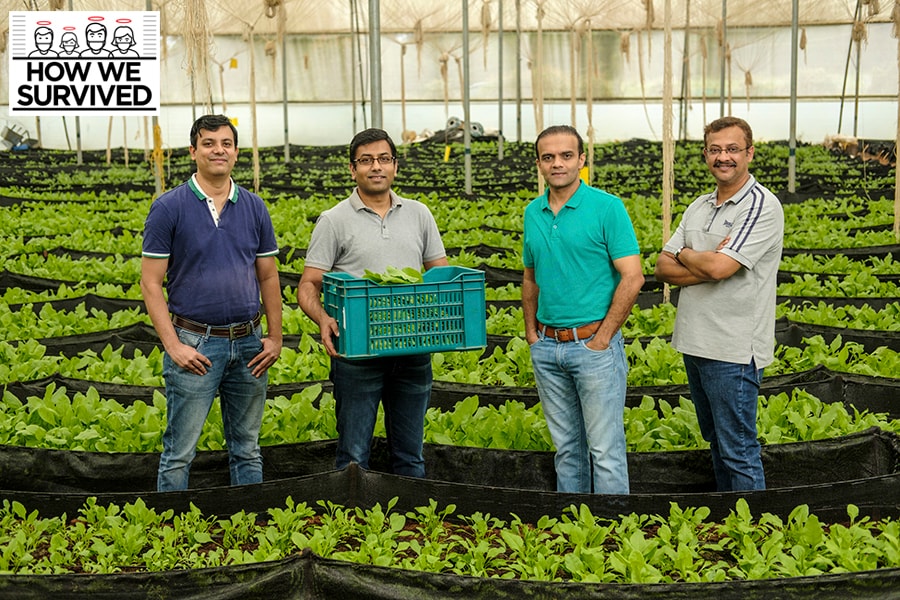
Clover: Uprooted to deep rooted
How the pandemic killed the B2B dream of agritech startup Clover, and gave it a consumer makeover in its new avatar— Deep Rooted. Can there be a brand in veggies and fruits?

Left to Right: Gururaj S Rao, Avinash B R, Santosh Narasipura and Arvind M, the cofounders of Clover. (Photo by: Nishant Ratnakar)
Covid-19 uprooted Clover. For two-and-a-half years, Clover, a greenhouse agritech startup supplying fresh produce to hotels, restaurants and cafes across Bengaluru and Hyderabad, was content with its B2B business. The co-founders—Avinash BR, Gururaj S Rao, Arvind M and Santosh Narasipura—dabbled into hydroponic farming in 2017 as a weekend vacation gig, started Clover in May 2018, and raised seed round from venture capital firms Accel and Mayfield in December. Another round of $5.5 million from Omnivore, Accel and Mayfield happened last February, and reportedly a million dollars from Alteria Capital came after three months. The plan was to expand operations to Mumbai, Pune and Chennai.
With Clover, the four co-founders were taking a stab at solving a deep-rooted problem: How to bring together small polyhouse (greenhouse) farmers and organise the supply side of fresh agricultural produce. The intent was good, the execution was perfect, and Clover gradually built its network with farmers owning two to three hectares of greenhouse and open farms.
By the end of 2019, the agritech startup had around 50 acres of managed farms, built a team of agronomists who worked very closely with the farmers, and set sights on taking its managed farm to 200 acres. “We were telling the farmer what to grow, how to grow, and ensured that they got the right yield productivity and also grew the produce in a clean manner,” says Avinash BR. Demand for such products existed as Clover found ample takers in cloud kitchen owners, QSR brands, modern retail chains and hotels. What was missing, and this is what Avinash and his gang were trying to solve, was an organised supply side. “We were doubling down on the supply side and B2B business,” he recalls. A comprehensive blueprint to go direct to the consumer, he lets on, was prepared but the rollout was planned after a good 15 to 18 months.
Come March 2020, and institutional demand vanished. “Over 70 percent of the business was from B2B customers,” rues Avinash. Covid posed a unique problem. Clover had control over the supply side. The demand side, unfortunately, played villain. Though the revenue crashed and the prospects looked gloomy, there was one silver lining: Direct to consumers. Team Clover went back to the drawing board, rejigged its plans and reached out to housing societies. What helped the gang in their outreach was the neo love of consumers for trusted and branded products. “We had a blueprint for B2C business as well, but it was not immediate. The plan was to roll out in 15 to 18 months,” says Avinash. The pandemic, he underlines, hastened the process. The gambit worked.








